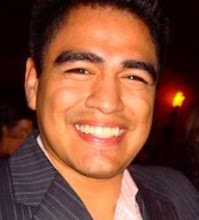We all know the pro's and con's of the internet, from a humanistic/philosophical perspective - even if this information is not explicit. The internet has the potential to bring us closer together, give us access to information, but like a double edge sword, it can also isolate many of us in the metaphysical realm of pure bits.
Google, wikipedia, and other information resources that are readily accessible have definitely expanded our collective mind - but has it helped with our own memory? Thinking about what it means to know something - (a debate heavily argued amongst philosophers of mind such as Dennett, Block, Searle, and many others) - is much more difficult than we think.
It comes down to accessibility. We know as much as we have access to. I remember having these conversations in college with Professors Hubert Dreyfus (whose book On the Interet: Thinking in Action) and Alva Noe, but now the implications seem a lot more real. Our conversations stemmed along what is really in the mind, what is memory, how is memory depicted/accessed, and what is the relationship between memory and the world around us?
We are allowing technology to eat away at our memory, without even realizing it. When asked a person's phone number, I rarely remember the number by heart, but I say, "Yes, I know it . . .hold on" and I'll proceed to check my phone. We do this a lot without realizing it and not just with phones. Does this mean that we do not know something? Or that we just do not know where to look or search for the information? Strip us from the tools that allow for searching and access, and we are automatically limited by the type of information that we can provide.
As of now, our searching capabilities are limited to devices and locations (phones, computers in certain areas), but this will change as technology is driven forward, how exactly, I am not sure. But it seems like what we know and how we search/access information is going to play a large role in how everything gets done in the future.
The seeds have been planted in the form of mobile search technologies ranging from new generation phones, computers, kiosks, etc. I for one am excited and welcome the future of technology - and I hope that as it integrates with people more, we don't lose our humanity - whatever that means.
Showing posts with label google. Show all posts
Showing posts with label google. Show all posts
November 17, 2007
23andMe - Genes / What we are / where we'll end up
23andMe is set to begin selling its product/service this coming Monday. Essentially, you provide a saliva sample and in return you are told what your genetic code has predisposed you to.
You think that you are at risk of diabetes, Alzheimer's, perpetually waking up at noon on a Saturday versus waking up at 6am and singing with the birdies? Well now, you can know, in a way, for $999. I believe the price tag is not steep, for the type of information that you can potentially receive -- but to what extent can you really understand predisposition solely based your genetic makeup?
Of course, nurture is known to play a role in our actualization, and although 23andMe does provide information on how lifestyle (eating habits, exercise routine, etc.) can alter your potential for becoming/having disease X, I don't completely buy it - perhaps, I am just more uneasy about what can be done with this information.
How is the information stored? What are the privacy issues surrounding this technology? Not that the founder Anne Wojcicki (Sergey Brin’s wife) has any bad intentions, but the fact that 23andMe received a $3.9MM investment from Google - does make me a bit skeptical.
Overall, I am for the service, but I would be cautious/leery of how that information will be stored/handled/disposed of, etc. And I am just as concerned that people will start to believe that we are ultimately governed by our genetic makeup.
I recommend the book "It Ain't Necessarily So: The Dream of the Human Genome and Other Illusions" by Richard Lewontin for anyone interested in knowing the kind of information and reliability that we ought to place in our genome.
You think that you are at risk of diabetes, Alzheimer's, perpetually waking up at noon on a Saturday versus waking up at 6am and singing with the birdies? Well now, you can know, in a way, for $999. I believe the price tag is not steep, for the type of information that you can potentially receive -- but to what extent can you really understand predisposition solely based your genetic makeup?
Of course, nurture is known to play a role in our actualization, and although 23andMe does provide information on how lifestyle (eating habits, exercise routine, etc.) can alter your potential for becoming/having disease X, I don't completely buy it - perhaps, I am just more uneasy about what can be done with this information.
How is the information stored? What are the privacy issues surrounding this technology? Not that the founder Anne Wojcicki (Sergey Brin’s wife) has any bad intentions, but the fact that 23andMe received a $3.9MM investment from Google - does make me a bit skeptical.
Overall, I am for the service, but I would be cautious/leery of how that information will be stored/handled/disposed of, etc. And I am just as concerned that people will start to believe that we are ultimately governed by our genetic makeup.
I recommend the book "It Ain't Necessarily So: The Dream of the Human Genome and Other Illusions" by Richard Lewontin for anyone interested in knowing the kind of information and reliability that we ought to place in our genome.
Subscribe to:
Posts (Atom)
